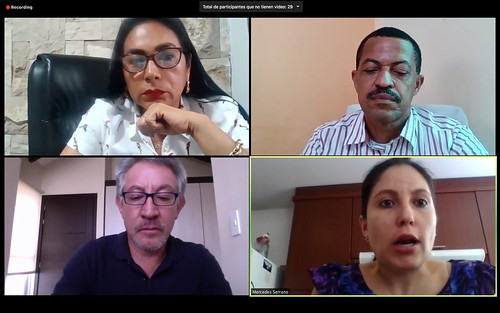
Photo Credit: Asamblea Nacional del Ecuador Flickr via Compfight cc
Job seeking obviously has been affected by the Covid-19 pandemic. Some areas are no-brainers but others will be a surprise to many.
APPLICATIONS
Cover letters are apparently more important now than ever before. I tell my clients – and now YOU, dear reader – to always send a cover letter. A cover letter is the only time you can tell an employer why YOU are the right person for a job. You get to market yourself in a cover letter, to put your lens over the employer’s eyes and show them why you can do the job.
Always Send a Cover Letter
Imagine my delight when I saw that TopResume surveyed recruiters, HR professionals and hiring managers between August and September 2020 and found that 48% agreed with the statement “I’m now more likely to read cover letters than before the pandemic.” I say always send a cover letter because you don’t know who is in that 48%.
INTERVIEWS
Most job seekers know that just about every interview is virtual. There may be an initial telephone interview but I’m hearing from clients that even that first contact is usually by Zoom or Google Meet.
Prepping for Virtual Interviews
Prepare a space where your face is well-lit, and you can sit comfortably for a while. Test it out at different times of the day.
Light matters because it will fall differently in the morning, afternoon and evening, and in different seasons. I move my computer from one place to another in my office this summer and everything looked fine on Zoom until the middle of October. Now I have light streaming in and onto my face at around 3 p.m. and it’s quite distracting, plus I look awful. I have to move everything again, or get a curtain or shade.
Test your microphone and camera before you log on, to make sure they work. There is nothing more annoying to a potential employer than someone who hasn’t mastered the Zoom technology by now. Seriously.
If possible, keep your pets away from you while you’re on the interview. I have two cats so I know the struggle, believe me. But if I’m going to be on an important Zoom call, I feed them early so they don’t come and bug me for food, interrupting me. They’re cute and all but it’s not professional.
If you are asked to come for an in-person interview, it’s only at the very end of the process and you are one of two or three finalists. Even then, your interview will be socially distanced. If you are being interviewed by a group, it’s likely that some interviewers will participate virtually.
THANK YOU EMAILS
Similar to cover letters, I urge clients to send a Thank You email following a job interview. Sending a separate Thank You email to each person is a way to remind them of who you are, how enthusiastic you are about the job and company, and why you’re the “right fit” for the job.
Now I have proof that Thank You notes are important. The same TopResume survey found that an overwhelming majority (68 percent) agreed with the statement, “A candidate’s thank-you email/note (or lack thereof) takes on greater importance when evaluating a candidate.” That’s two-thirds! If you don’t send a thank you note, you are probably cutting yourself out of the running for the job. So send it, and send it as soon as possible after the interview.
Get Names & Email Addresses
Make sure you get the names of each person with whom you interviewed and at least one person’s email address. If you have one person’s email address, you will have the email format for the company, and you also can communicate with everyone through that one person.
GAPS IN RESUME
Here’s one area you don’t have to worry about quite as much, thanks to the pandemic. 87% of TopResume’s respondents answered NO to this question: “Do you now view candidates being unemployed and/or having an employment gap lasting more than three months as a red flag?” Only 13 percent said there’s still a stigma attached to unemployment or a lengthy employment gap.
Keep Up Your Skills
See if you can do volunteer work for a small business or non-profit in your town. Or find a free or very low-cost class. They do exist if you search for them on the internet. For example, I’m getting an on-line certificate in user experience via Interaction-Design, at a very low monthly cost (they’re based in Europe). Udemy, Google, Microsoft and other places have courses and certifications that also can help you.

